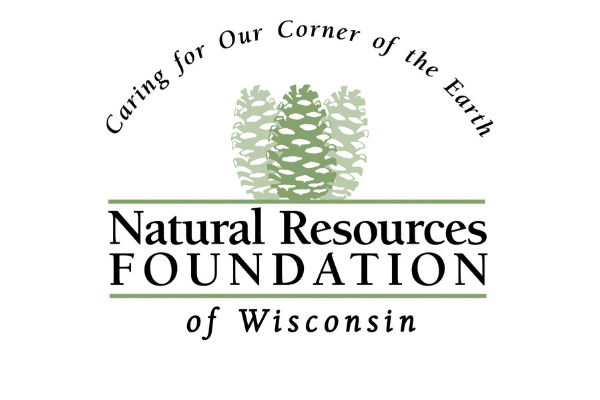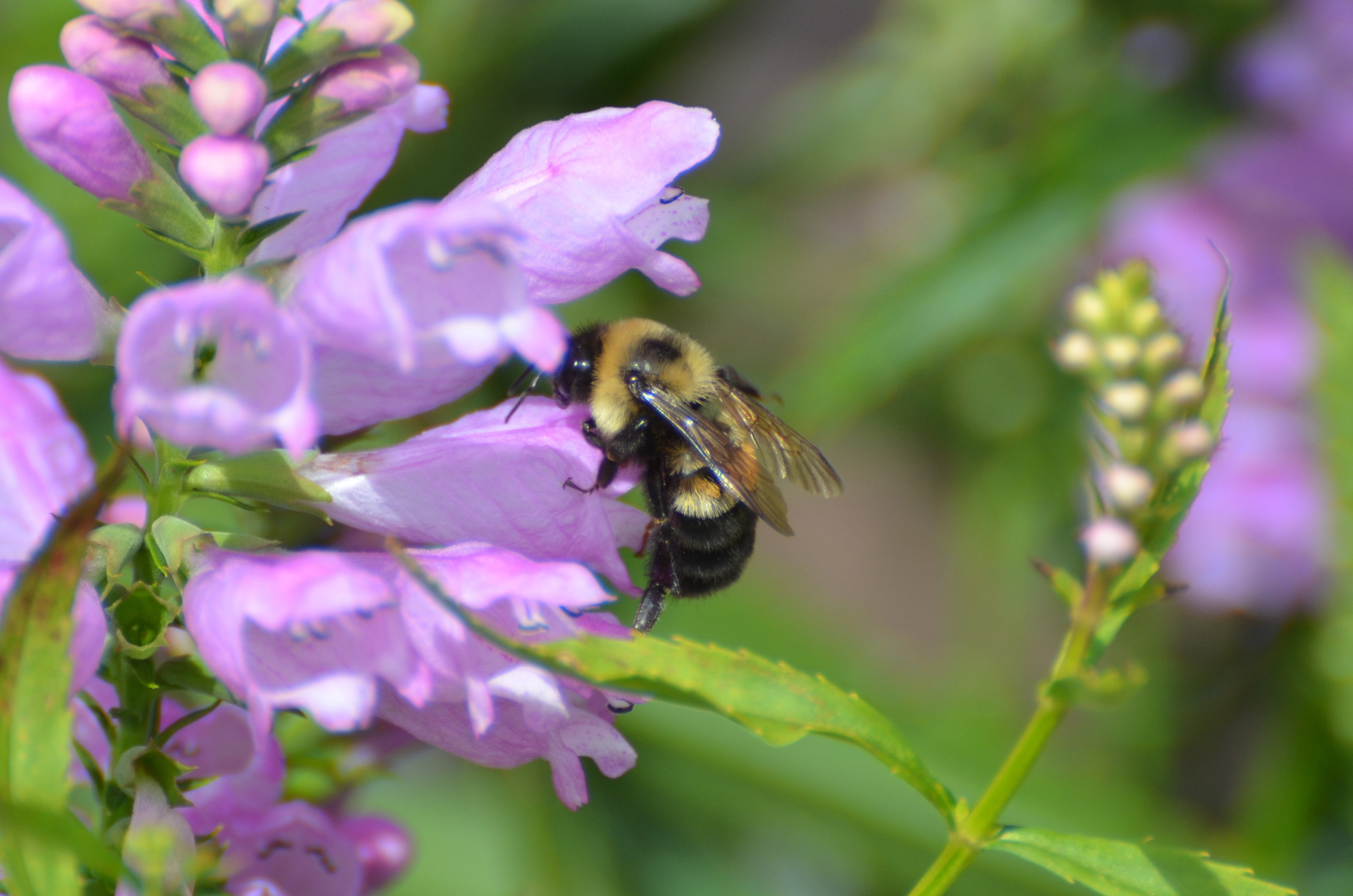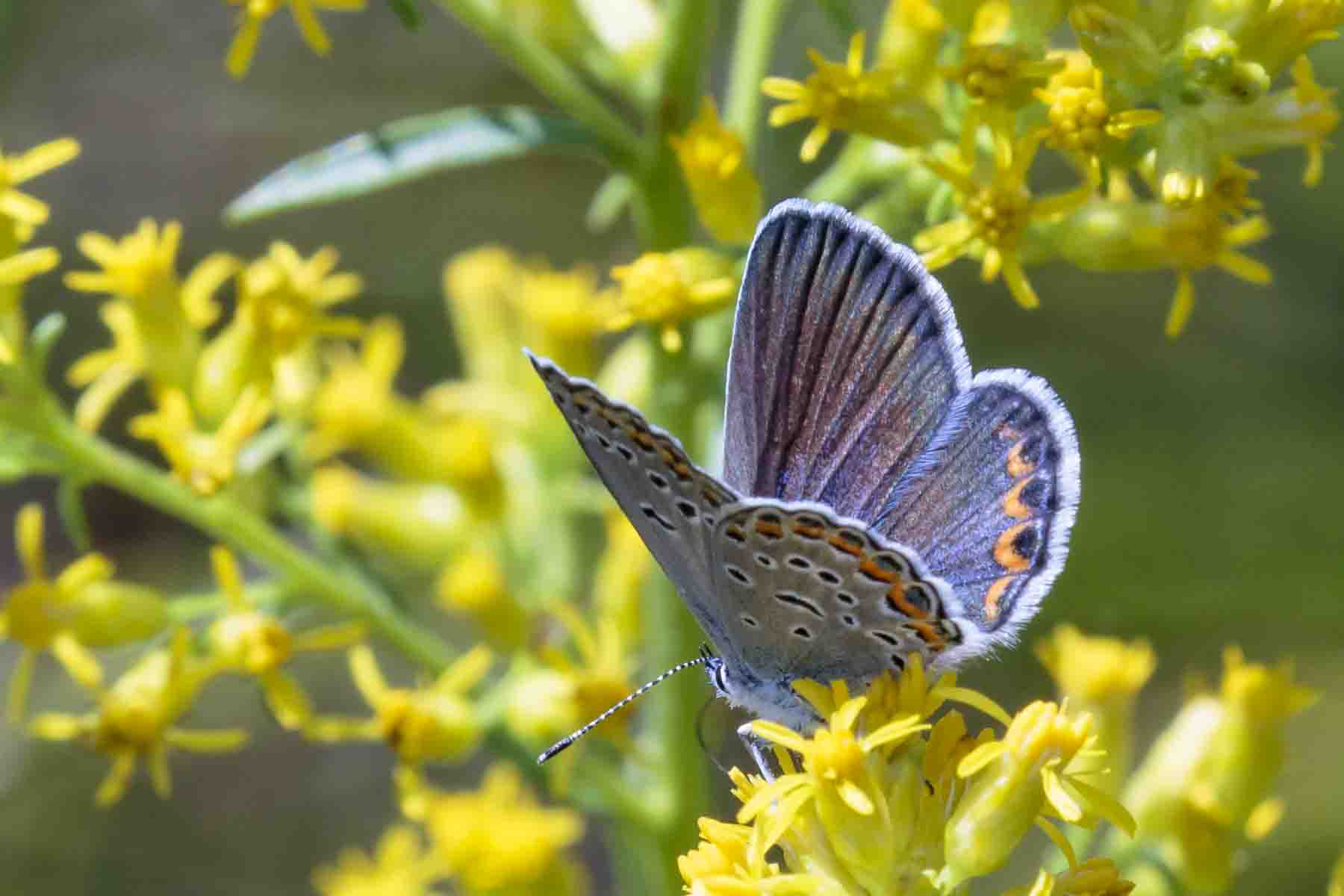Press Release

Caitlin Williamson, Director of Conservation Programs
Natural Resources Foundation of Wisconsin
PHONE: (608) 409-3109
Madison, WI
August 26, 2019
Anonymous half-million dollar donation creates hope for Wisconsin pollinators
New fund will support Wisconsin’s native pollinators that are in decline
 The federally endangered rusty patched bumble bee. Photo by Jay Watson.
The federally endangered rusty patched bumble bee. Photo by Jay Watson.
The Natural Resources Foundation of Wisconsin recently received a $500,000 donation that will support statewide native pollinator conservation efforts through the creation of the Wisconsin Pollinator Protection Fund.
“We decided it was time to support pollinators because they are the unsung heroes of the special ecosystems we enjoy in Wisconsin,” shared the donors, who wish to remain anonymous. “While they don’t come readily to mind when we think about Wisconsin’s natural areas, these tiny creatures are vital to supporting the habitats that plants and animals depend on.”
Pollinators, including bees, butterflies, moths, flies, beetles, and birds, carry pollen from flower to flower helping many plants produce seeds, fruits, and vegetables. Despite their value to the economy and the natural world, pollinators are in decline in Wisconsin and across the globe.
Loss of habitat for feeding and nesting, pesticide and herbicide use, invasive species, climate change, and diseases are all contributing factors to their decline.
The federally endangered rusty patched bumble bee, for example, was once a common sight in the Midwest. However, in the past 20 years their populations have plummeted by 87%, and their range has shrunk to an estimated 0.1% of where they could once be found.
Other species of concern in Wisconsin include the yellowbanded bumble bee, American bumble bee, the federally endangered Karner blue butterfly and Poweshiek skipperling, and the state endangered northern blue butterfly, regal fritillary, and phlox moth.

Karner blue butterfly. Photo by Bruce Bartel.
While some plant species can fertilize without the aid of pollinators, more than 85% of the world’s flowering plants and two-thirds of the world’s crop species are dependent on pollinators for reproduction.
“One in three mouthfuls of food and drink we consume is dependent on the work of pollinators,” says Department of Natural Resources conservation biologist Jay Watson. “Wisconsin crops that rely on pollinators, including apples, cherries, green beans, cucumbers, and cranberries, account for over $55 million in annual production.”
Native pollinators are equally important to natural communities like forests, prairies, marshes, sedge meadows, and lake dunes that can be found across Wisconsin. These communities also include Wisconsin’s 687 designated State Natural Areas that are home to the majority of the state’s endangered and threatened species, as well as species of special concern.
The Foundation’s Director of Conservation Programs, Caitlin Williamson, worked closely with conservation partners to advise the donors on strategies for the fund that align with statewide, regional, and national pollinator recovery plans, including the Wisconsin Pollinator Protection Plan.
The fund will support habitat creation and enhancement, research and monitoring, new staff positions for pollinator conservation in Wisconsin, as well as education and outreach efforts.
One key strategy of the fund will be to engage Wisconsin farmers in creating pollinator habitat on their agricultural land through practices like creating prairie strips, (small areas of native plants on corn or soybean fields) or utilizing precision agriculture (transforming low-yield farmland into pollinator habitat). Both strategies create habitat for wildlife while also benefiting farmland by reducing soil erosion and improving soil and water quality.
The Foundation will be seeking additional donations to the fund in the upcoming months that will be matched – up to $10,000 – by the anonymous donors. The Foundation will use these donations to create an endowment that will provide permanent funding for Wisconsin’s native pollinators.
“Pollinator conservation will take decades of work, and long-term sustainable support,” says Williamson. “But the great thing about pollinators is that everyone can get involved, from individuals, to schools, to businesses, to farmers. Our small actions, combined together, can make a difference.”
Donations to the fund can be made online at www.WisConservation.org/donate and should be designated to the “Wisconsin Pollinator Protection Fund.”
The Natural Resources Foundation of Wisconsin was created in 1986 and connects generations to the wonders of Wisconsin’s lands, waters, and wildlife through conservation, education, engagement, and giving. With the support of over 5,000 members and donors, the Foundation has contributed over $7 million to public and private conservation efforts to protect the lands, waters, and wildlife of Wisconsin. The Foundation also coordinates hundreds of Field Trips annually that are open to the public to explore significant sites and get behind-the-scenes tours of some of our state’s most important conservation projects, and has supported more than 500 grassroots conservation projects in every Wisconsin county through its grant programs. Learn more at www.WisConservation.org.
###

Caitlin Williamson
Director of Conservation
(608) 409-3109
Caitlin.Williamson@WisConservation.org
Cait Williamson (she/her) oversees the Natural Resources Foundation’s grant programs and initiatives for conservation and environmental education, working closely with partners across the state to ensure that our Foundation has the most significant impact possible on Wisconsin’s lands, waters, and wildlife through strategic, science-based investments.
